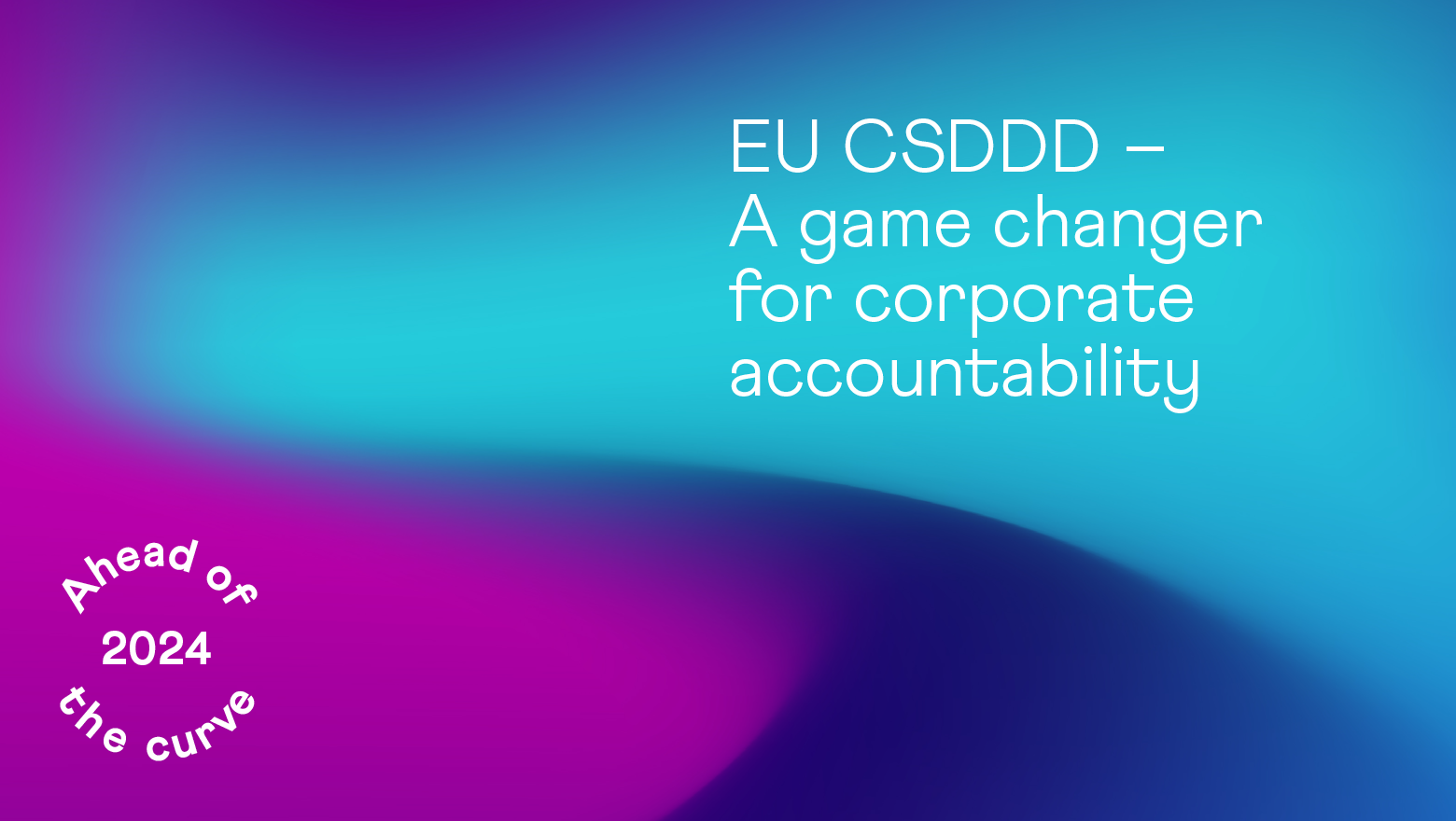
By introducing a due diligence duty, the CSDDD makes it a legal requirement for in-scope companies to identify and prevent, end or mitigate negative impacts of their activities on human rights, such as child labour and exploitation of workers, and on the environment, for example pollution and biodiversity loss. The goal is to hold more companies accountable for their wrongdoing and prevent negative impacts from occurring in the first place
Stay informed with regulations, insights & events by joining our mailer
What does CSDDD stand for?
CSDDD stands for Corporate Sustainability Due Diligence Directive. It's an EU initiative that is to be adopted in 2024 and will require companies to scrutinise the social and environmental impacts not just in their own operations, but throughout their value chain.
Can a company truly claim to be sustainable if it is actively addressing human rights and environmental violations within its own four walls but has no visibility as to what suppliers across its value chain are doing to manage and mitigate these issues?
Companies with far-reaching and complex supply chains find it difficult to gather trustworthy information across their value chain, even if this is where serious human rights or environmental issues can lurk in. While accepting that most companies genuinely want to operate ethically, for a decade EU citizens and businesses alike have been advocating for a directive pushing companies to address environmental and social issues in everything they do, including across the entirety of their value chains.
70% of businesses who responded to the EU’s public consultation agreed that EU action on corporate sustainability due diligence is needed.
By introducing a due diligence duty, the CSDDD makes it a legal requirement for in-scope companies to identify and prevent, end or mitigate negative impacts of their activities on human rights, such as child labour and exploitation of workers, and on the environment, for example pollution and biodiversity loss.
The goal is to hold more companies accountable for their wrongdoing and prevent negative impacts from occurring in the first place.
What will be required?
While the directive hasn’t been fully finalised yet, it is clear already that in-scope companies will be required to:
- Integrate sustainability due diligence into their policies to identify harmful environmental and human rights issues, as well as reduce and prevent risks in their operations and value chain.
- Create an action plan and timeline for addressing identified risks.
- Monitor the effectiveness of the due diligence processes by tracking the implementation and results.
- Set up an effective complaints procedure for reporting problems or concerns.
- Have a climate transition plan compatible with limiting global warming to 1.5°C, in line with the Paris Agreement.
- Publicly communicate due diligence efforts, typically in the annual ESG or Human Rights Due Diligence report.
When will CSDDD come into effect?
When the CSDDD is officially adopted, each EU member state will have two years to fully integrate it into the national law. The implementation will vary depending on the company’s size and net turnover, but it’s fair to say consequences for companies found not to be compliant with CSDDD requirements could be serious, both financially and from a reputational point of view:
- Each EU Member State will appoint national administrative authorities to ensure the requirements are followed, including deciding on penalties such as fines and issuing orders to fix the problems.
- Victims of breaches will be able to bring civil liability claims (also collectively) for damages before the national courts.
Who will CSDDD apply to?
To begin with, the CSDDD will apply to EU companies with more than 500 employees and net annual revenues of more than €150 million, and a different size threshold will apply to specific “high-impact sectors”. Some non-EU companies will be subject to the rules three years after they enter into force.
Get prepared
So, are you prepared for the inevitable increase in scrutiny around environmental compliance and human rights practices the CSDDD will bring? Reach out to us to provide training to your teams, help you develop or review your net zero transition plans or embed ESG policies in management communications.

